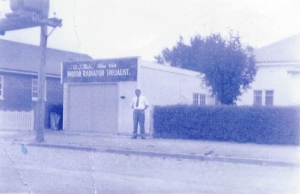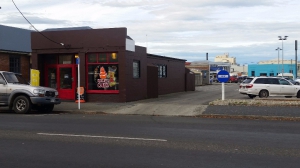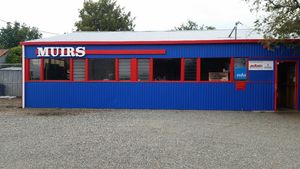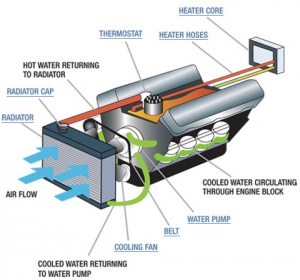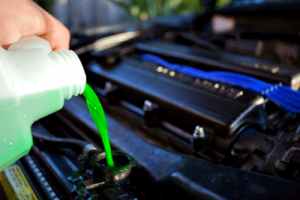CHRISTMAS/NEW YEAR Hours
 We will be closing at 5pm on Tuesday 23rd Dec and re-opening on Monday 5th January.
We will be closing at 5pm on Tuesday 23rd Dec and re-opening on Monday 5th January.
The Team at Muirs Radiators wish you all a happy and safe holiday season and look forward to being of assistance to you in 2026
2022 CHRISTMAS/NEW YEAR HOURS
 We will be closing at 5pm on Thursday 22nd Dec and re-opening on Monday 9th January.
We will be closing at 5pm on Thursday 22nd Dec and re-opening on Monday 9th January.
The Team at Muirs Radiators wish you all a happy and safe holiday season and look forward to being of assistance to you in 2023
Motoring Mad 2018 - 3 Day Event
Motoring Mad
By: Mataura Scouts fundraiser16-Nov-2018, 7:00 PM - 18-Nov-2018, 2:00 PM
Gore Main Street and Tulloch Park,
MatauraRegistration $90 per car, $45 per passenger
Event Details
Now a 3-day event, this is a must-attend event for car lovers.
The Motoring Mad event begins with a cruise of Gore's Main street on Friday 16 November. Main Street is closed to the public so drivers can lap it up all night long.
For those taking part over the weekend, there is a 200km cruise around the district on Saturday 18 November.
And for spectators, Sunday is the event that kicked it all off - the Motoring Mad car show at Tulloch Park, Mataura. There's live music and plenty of entertainment for kids.
For more information about taking part email
mataurascouts@gmail.com
Past and Present
In 1952 Bert and Megan Muir opened Muirs Radiators in a lean-to in the back of their property in Irwell St, Gore. Then as the business grew they built a concrete block workshop (as seen in photo 1).
In the late 1970's Muirs Radiators moved to their now workshop in Gorton St, but the Irwell St property still stands.
The property has been home to many businesses but now it is home to Shelby's Cakes (as seen in photo 2)
Now this is the new and improved workshop in Gorton St (as seen in photo 3)
How the times have changed. One thing that hasn't changed is the quality of Muirs Radiators and their products.
Come in and see us or give us a ring (03) 208 7746 we are happy to help you out with all your radiators, intercoolers and more.
Your Car's Cooling System and it's Components
The main purpose of your car’s cooling system is to keep your engine from overheating.
Your Car's Cooling System. Important knowledge for your next radiator repair.Your car produces a great deal of heat when it is running, and must be cooled down continuously to avoid overheating and engine damage. In order to understand your car’s cooling system it is important to understand all of the basic cooling system components.
Radiator
Radiator top hose
Radiator bottom hose
Water pump
Thermostat
Electric cooling fan
Thermo-time switch
Radiator
Your radiator is the most important part of your cooling system. Coolant that has traveled through the engine is pumped through the tubes of the radiator and is cooled off for another round.
Radiator Hoses
Your vehicle’s cooling system has a number of rubber hoses which move fluid from one place to another. These Radiator hoses need to be replaced before they become brittle and cracked.
Water pump
The water pump in your cooling system pumps the coolant through the system. In most cars the pump is belt driven, with the exception of some race cars that use electric water pumps.
Thermostat
Your engine doesn’t always maintain the same temperature. Starting your car in cold weather would take forever if your engine stayed at the same temperature all the time. The thermostat controls the flow of coolant throughout your car’s cooling system, with the temperature of the coolant cooling the engine down.
Electric Cooling Fan
Many modern cars have an electric fan for primary or added cooling. When the car is not moving fast enough to generate enough airflow to cool the engine, the fan draws air through the radiator.
Thermo Time Switch
Also known as the fan switch, this is the temperature sensor that tells the electric fan when to blow
What to do in case of Engine Overheating
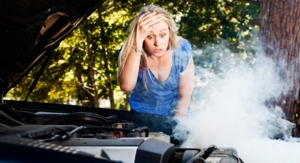 When did you last lift the bonnet to check your engine’s coolant level?
When did you last lift the bonnet to check your engine’s coolant level?
When did you check the rubber hoses for leaks?
These are just two things that you could do to help prevent your engine from overheating.
Your car’s cooling system is your engine’s front line of defense when it comes to the ongoing battle against overheating. If you maintain your car’s cooling system and take a few other preventative measures, you’re ensuring that your engine won’t experience the added stress of operating under extreme high temperatures.
However, in case of engine overheating, there’s a number of things you can do to ensure your safety.
- Turn off your air conditioning: This is the very first thing you need to do as soon as you suspect that your car’s engine is overheating. Air-conditioning puts a load on the engine that you want to avoid in this situation.
- Pull over and turn off your engine: Find a safe place to stop, pull over and turn off the engine immediately. Do not idle the engine while you’re collecting your thoughts. Engines have to work harder to keep cool at idle than at cruising speed, and the last thing you want to do is add stress to a potentially overheating engine.
- Take caution when opening the bonnet: Remember to let the engine cool down before proceeding and only open the bonnet fully when you are confident that it’s safe to do so.
- Check coolant levels: Your engine should have a coolant reservoir near the radiator (see your owner’s manual for the exact location). This is usually made of plastic and unlikely to be dangerously hot. Check the coolant level in this reservoir. If it’s normal, you’re in luck—chances are you’ve just got a malfunctioning temperature gauge. As long as there are no other signs of overheating, you can restart the engine and proceed with caution. If it’s low or empty, however, there’s probably a coolant leak somewhere and we strongly advise calling roadside assistance, though the more mechanically inclined might first inspect the radiator hoses for loose clamps and such. Things can get out of control quickly if you don’t know what to do when your vehicle’s temperature rises.
- If you need to keep driving… Wait until you’re certain the engine is cool, protect your hand with a thick glove or rag, and twist off the radiator cap. Coolant is normally visible just below where the cap sits (your owner’s manual will have the details), but if your engine’s overheating, the coolant in your radiator should be visibly depleted. Be sure to refill both the radiator and the reservoir, ideally using the correct mix of coolant and water if available, otherwise just use water. This should bring the temperature down once you’re underway, but remember, you’ve got a serious leak somewhere, so be vigilant. If the temperature starts rising again, you’ll have to pull over and repeat the process.
Disclaimer: This article is intended for information only and should not be followed without taking the advice of an onsite radiator specialist.
For this and more information on how to find your local radiator specialist and Adrad Agent then please visit www.0800radiators.co.nz
The 6 Myths of Antifreeze that can threaten your Radiator
Who knew that the misuse of antifreeze could have such devastating effects on your car’s radiator?
There are many common misconceptions about antifreeze. Let’s look at their impact and recommend what you should do instead.Radiator Myth 1:
As long as I keep the antifreeze topped up, my radiator system doesn’t need servicing.
It’s not unusual for people to believe that as long as they keep the levels of antifreeze up, their radiator cooling system won’t need servicing. This is a dangerous assumption as over time antifreeze breaks down, causing rust and rust particles to become electrically charged. Once this happens, the antifreeze becomes highly corrosive. This can cause major damage to the radiator cooling system and can affect the entire engine.
Radiator Myth 2:
A radiator flush isn’t necessary – topping up with antifreeze does the job just as well.
Antifreeze breaks down over time. Topping up your antifreeze leaves the old or broken down antifreeze in the system. If it’s not flushed, it will wear down your car’s engine and cause corrosion.
Radiator Myth 3:
A small antifreeze drip is OK, it’s the bigger ones you need to worry about.
A small puddle on your garage floor might not seem a big deal, but it has big implications. Glycol (or antifreeze) is extremely toxic. It tastes sweet, making it appealing to dogs and small children – a problem when you park on the street. When it rains, any antifreeze spill will be washed into your community’s surface water supply. Antifreeze is so toxic, that NZWWS (New Zealand Water and Waste Supply) asks that it is dumped at a hazardous waste facility. Ask your local council for location details of your nearest hazardous waste facility.
Radiator Myth 4:
Slow down if your car is overheating.
When you see that temperature gauge shoot up or you smell your engine overheating, your first reaction is to slow down – NOT a good idea. The best solution is often to INCREASE your speed. This will increase the radiator’s antifreeze flow and the airflow over the engine, enabling it to cool down. Another trick is to turn your heater on. While this can be uncomfortable to sit through, it’s redirecting the engine’s heat and may save your engine.
Radiator Myth 5:
It doesn’t matter which antifreeze you use, they’re all pretty much the same.
Not so. In fact, using the wrong antifreeze product in your radiator could even void your car’s warranty. Certain car manufacturers specify which brand of antifreeze they support. Check your owner’s guide before you decide on which antifreeze to put into your car.
VERY IMPORTANT: Do NOT, under ANY circumstances, mix different antifreeze products together. They can chemically react with one another and can be dangerous.
Radiator Myth 6:
It’s more effective to use 100% antifreeze in your radiator, and not add water.
Wrong! In fact, pure antifreeze will freeze if the temperature drops low enough. Mixing it with water will lower the chance of your radiator contents freezing up in the winter. These useful tips debunk just some of the theories people hold around radiators and antifreeze.
Ever wondered how a thermostat works?
Have you ever wondered how a thermostat works in your vehicle. This clip that i have for you will explain it all.
Remember if you are unsure if your thermostat isn't working correctly then bring it into Muirs Radiators and we can sort you out. We have a wide range of thermostats to suit your vehicle.
Muirs Radiators - Gore's only radiator specialist



